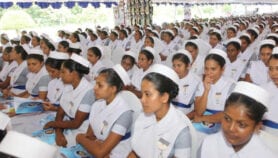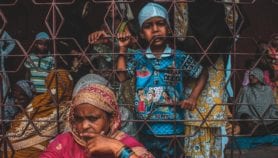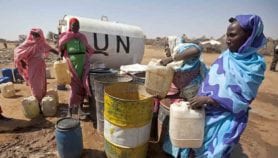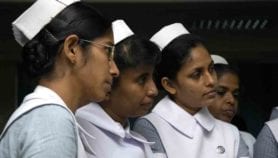By: Priya Deshingkar
Send to a friend
The details you provide on this page will not be used to send unsolicited email, and will not be sold to a 3rd party. See privacy policy.
Having been sidelined by the Millennium Development Goals, it is a welcome change to see migration included in the post-2015 goals. Six SDGs refer to mobility in one way or another, and specialists have applauded them for ‘recognizing the positive contributions of migrants and their fundamental role in sustainable development’. Goal 10, on reducing inequality, refers to an important issue long-neglected in development debates: reducing the cost of remittances, or sending money home — a vital source of income for millions of people worldwide.
This is a positive step. But the focus still tends to be on remittances sent between countries, while money transfers by migrant workers within countries are neglected. Systems for transferring money within a country can be inefficient, old-fashioned and even dangerous.
This neglect is curious given that the number of internal migrants globally is at least 740 million — four times the number of international migrants. Their transfers flow directly to poor and often rural households. [1]
“The beauty of M-Pesa is that it offers people without bank accounts an easy, reasonably priced money transfer system.”
Priya Deshingkar
Internal money transfers are thus hugely important for reducing poverty. In addition, the total amount of money people receive in a country by internal transfer can be much greater than what is received from relatives abroad.
Research that I co-authored in eight African countries and India has shown that in four of them — Ghana, India, Rwanda and South Africa — internal transfers were worth much more than international transfers. [2]
For example, in India in 2007-08, internal migrants sent over US$7.5 billion — almost twice the US$3.8 billion sent by international migrants. And in Ghana, internal transfers totalled US$324 million in 2005-06 compared with US$283 million sent internationally.
Despite this, policies and development programmes pay little attention to making internal systems efficient and safe. For those outside the formal banking system, sending and receiving money continues to be risky, expensive and inefficient. In India the poorest migrants often carry money home by hand or send it via trusted relatives, but run the risk of being robbed along the way. [3] Others may send money through hawala type systems, which involve an informal network of brokers in source and destination locations — and this is expensive.
In some countries, mobile money systems have made transfers far safer and more efficient. In Kenya, for example, the much celebrated M-Pesa system has more than 20 million users. The beauty of M-Pesa is that it offers people without bank accounts an easy, reasonably priced money transfer system that needs no more than a national identity document and any type of mobile phone.
But efforts to replicate this in other countries have often ended in failure. This can be for structural reasons, as research by Rajiv Lal and Ishan Sachdev at Harvard Business School has shown. [4] They compared successful mobile money experiments in the Philippines, Somaliland and Zimbabwe with less successful ventures. What became clear is that one formula doesn't fit all.If technology is to enable internal migrants to send money to their families cheaply and safely, we need regulations tailored to fit the specific needs of each country. Crucially, before the technology can begin to work its magic, governments need to encourage networks of agents that can receive deposits and pay out the cash.
Dr Priya Deshingkar is research director of the DFID-funded Migrating out of Poverty Research Consortium at the University of Sussex, United Kingdom. Her interests include precarious migrant occupations, exploitation in labour markets, informal settlements, gender and poverty. You can contact her at [email protected]
References
[2] Internal Remittances and Poverty: Further Evidence from Africa and Asia (UK Department for International Development, 2014)
[3] The Role of Migration and Remittances in Promoting Livelihoods in Bihar (Overseas Development Institute, 2006)
[4] Mobile Money Services – Design and Development for Financial Inclusion (Harvard Business School, 2015)














